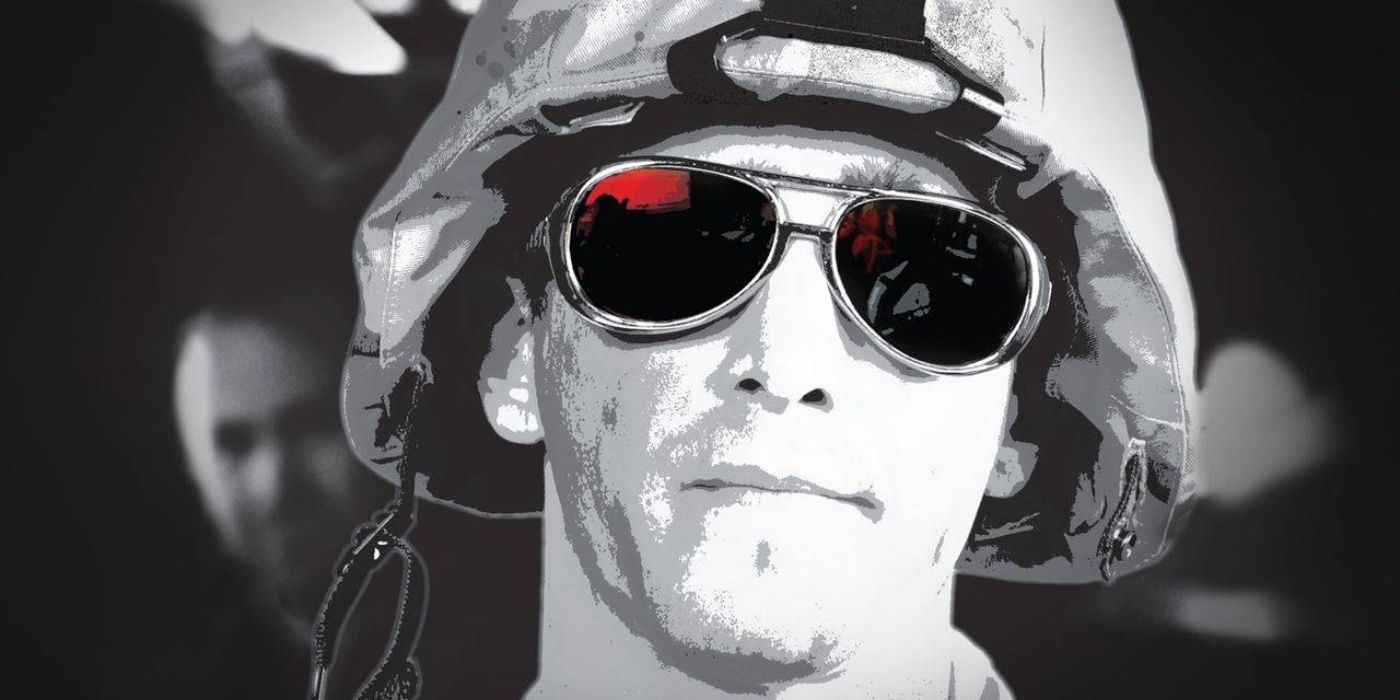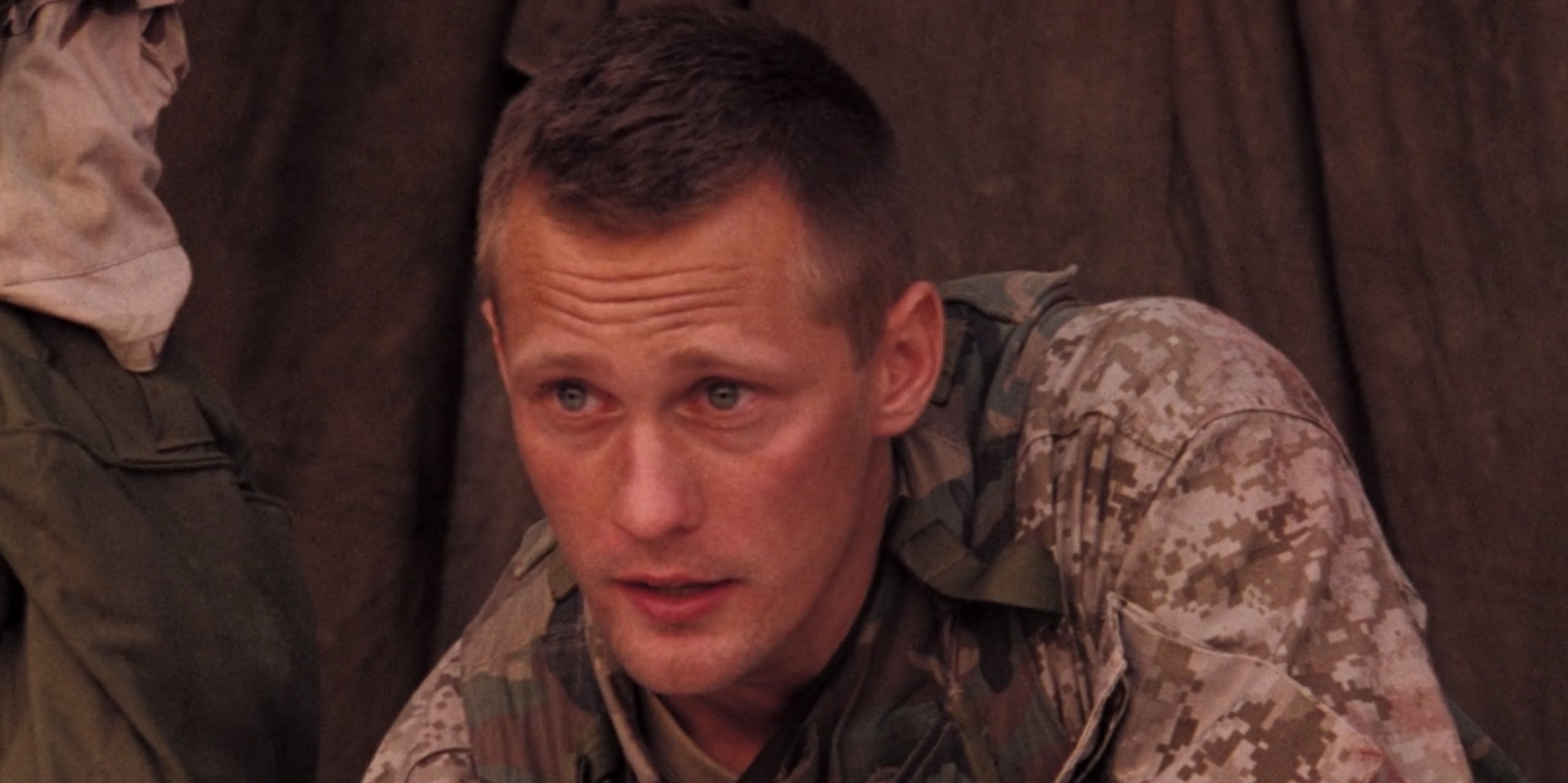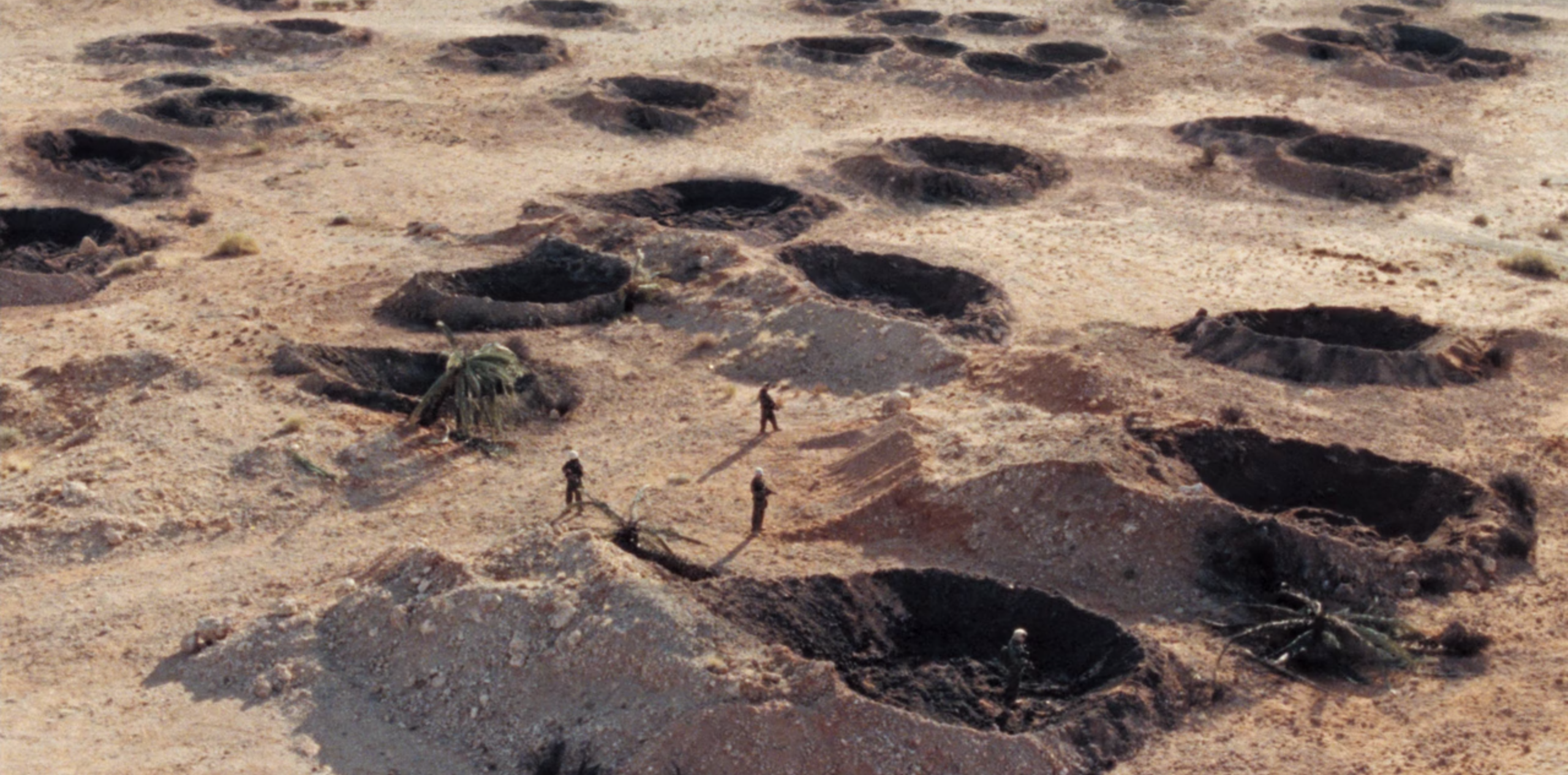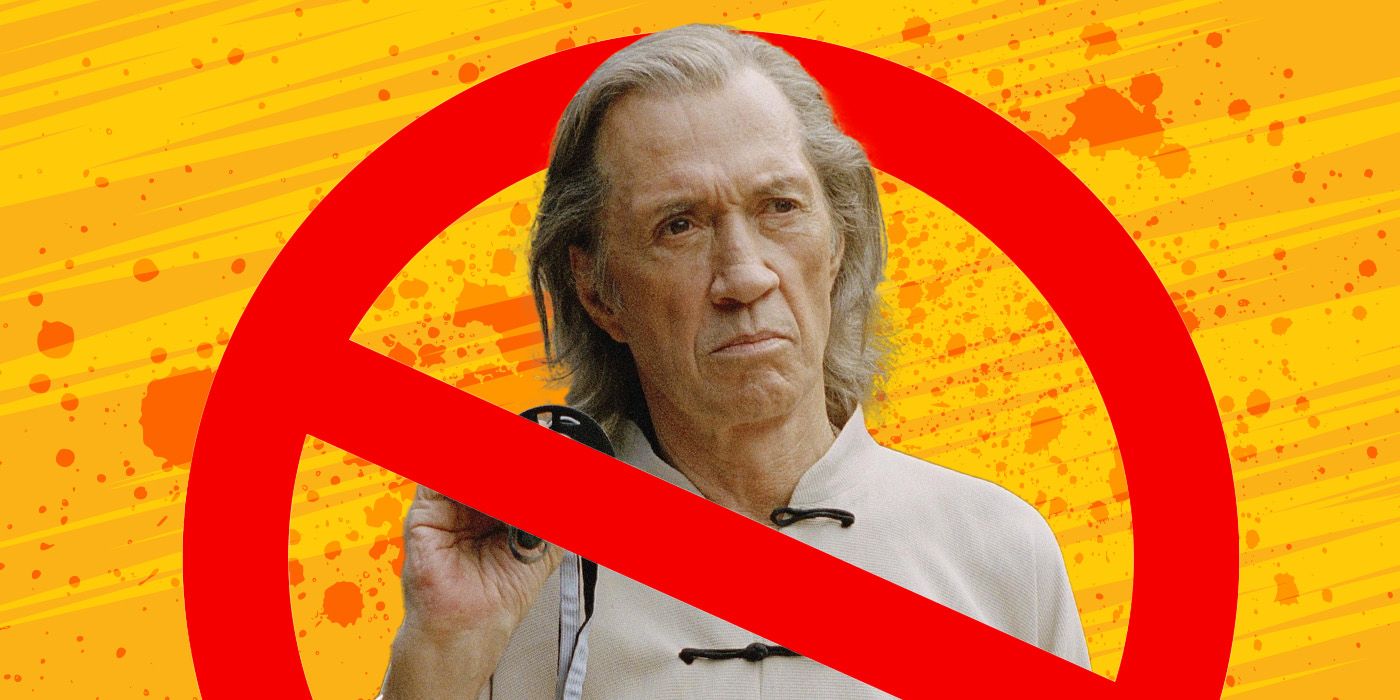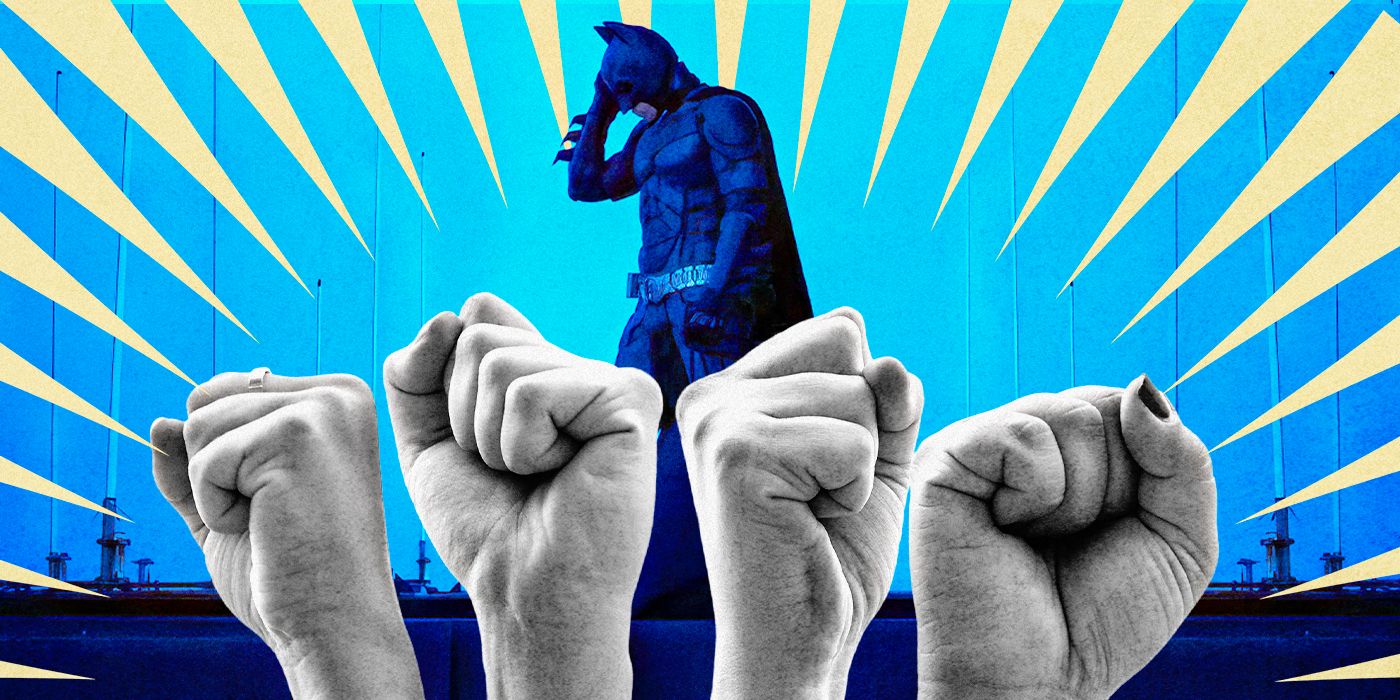The Big Picture
- Generation Kill, a 2008 miniseries, is a must-watch for fans of old-school classics from turn-of-the-century HBO, providing an absorbing, kinetic experience.
- The series, created by David Simon and Ed Burns, serves as a valuable puzzle piece in the history of TV and 21st-century America, continuing the legacy of The Wire.
- Generation Kill portrays the U.S. military as a force of destruction in Iraq, highlighting the failures of bad leadership and the devastating consequences of the invasion.
Prestige TV fans, particularly the true heads who prefer the old-school classics from turn-of-the-century HBO, will absolutely want to watch (or rewatch, if it’s been a while) Generation Kill, the 2008 HBO miniseries that presents a dramatized account of a marine battalion during the first few weeks of the 2003 United States invasion of Iraq. The series was based on a book of the same name by journalist Evan Wright, which detailed his experiences as an embedded reporter with Bravo Company of the 1st Reconnaissance Battalion.
The series was adapted for cable by Wright, alongside David Simon and Ed Burns, who, respectively, created and wrote for The Wire. Generation Kill is an absorbing, kinetic experience with seven episodes that fly by. It also serves as a valuable puzzle piece in the history of TV, as well as the history of 21st-century America.
Generation Kill
A Rolling Stone reporter, embedded with The 1st Recon Marines chronicles his experiences during the first wave of the American-led assault on Baghdad in 2003.
- Release Date
- July 13, 2008
- Creator
- David Simon, Ed Burns, Evan Wright
- Main Genre
- Drama
- Genres
- Drama , War
- Rating
- TV-MA
- Seasons
- 1
‘Generation Kill’ Picks Up Where ‘The Wire’ Leaves Off
During the era of “Peak TV,” an explosive innovation in television storytelling lifted TV’s reputation as an art form. This period is typically considered to have begun during the early 2000s, when David Chase‘s The Sopranos, Alan Ball‘s Six Feet Under, David Milch‘s Deadwood, and David Simon’s The Wire were on the air. We’re listing the names of all these showrunners because it was during this time that the term “showrunner” came into wide use by critics and audiences, who were beginning to regularly identify TV shows as the creative output of a single auteur. In the late 2000s, this idea was put to the test, as these showrunners began to release their follow-up shows, such as John From Cincinnati (Milch), True Blood (Ball), and Generation Kill. Would the core tenet of Peak TV – that TV shows have an authorial voice – hold true? In the case of Generation Kill, which debuted only a few months after The Wire series finale, audiences were clearly getting the work of an auteur who was picking up where he had just left off.
The Wire was a story about the institutional failures that prevented the Baltimore Police Department from effectively confronting the illegal drug trade. One of its final scenes is a “fake funeral,” a ritual that its police officer characters hold whenever one of them leaves the force. While the retiring cop pretends to be dead, his colleagues pretend to mourn him, and remember what an annoying prick he was. Generation Kill opens in the desert, in what seems to be the middle of a tense assault on a line of military Humvees. We meet the marines of Bravo Company just as they seem to have taken a casualty. However, everything we’ve watched turns out to only be a training exercise. The marine casualty is only play-acting. “How does it feel to be fuckin’ dead?” his buddy asks.
The callback is hard to miss, but it’s more than that. This moment clarifies a recurring theme in Simon’s body of work. His characters, though they are witnesses to horrific violence and death, are destined to survive. The police of The Wire and the marines of Generation Kill, contrary to genre conventions, rarely have their lives at risk. The greatest risk for these characters is that they will fail at their jobs – the ultimate costs will be borne by others. Their “deaths” can only be symbolic ones. In Generation Kill, we witness the devastation wreaked on Iraq through the eyes of the people who, intentionally or not, did much of the damage.
In ‘Generation Kill,’ the U.S. Military Is a Force of Destruction in Iraq
Generation Kill follows a company of marines from Kuwait City, at the very beginning of the ground invasion of Iraq, through its arrival in Baghdad. Bravo Company is a reconnaissance unit, and so they travel in Humvees, instead of tanks, on endless drives across the desert. Though we get to know a lot of these soldiers, much of our time is spent in a Humvee with Captain Brad “Iceman” Colbert, motormouth driver Corporal Ray Person, and an unnamed embedded journalist who is a stand-in for Evan Wright. The three of them are played by Peak TV legends — Alexander Skarsgård (True Blood, Succession) in his breakout role as Colbert, James Ransone (Ziggy from The Wire) as Person, and Lee Tergesen (Beecher on HBO’s Oz) as the reporter often referred to in-show as “Rolling Stone.”
The story structure is similar to HBO’s World War II miniseries Band of Brothers, which also followed a company of American soldiers through a war. But where Band of Brothers was sentimental, and valorized its characters’ heroism, Generation Kill aims to be more clear-eyed. The invasion of Iraq had many complex motives, but it was sold to the American people as a humanitarian mission to free the Iraqi people from the authoritarian rule of Saddam Hussein and the Ba’ath Party. (“We will be greeted as liberators,” the architects of the war famously promised.) By 2008, Operation Iraqi Freedom was understood to have been a failure that did vastly more harm than good. We watch as these marines come to the same disillusioning realization in real-time.
Episodic in nature, Generation Kill repeatedly illustrates a few key ideas. One is that the rigorous training marines go through, and their dedication to their mission, is easily undermined by bad leadership. A running joke throughout the series is Iceman’s warrior-like frustration with the fact that, though he is trained in reconnaissance, the invasion is being managed with such heedless aggression that there are never any true recon missions, just blind frontal assaults. The villains in the story are all officers. The greatest dangers to the Marines are either mid-level officers like the memorable characters “Captain America” (Eric Nenninger) and “Encino Man” (Brian Patrick Wade), whose incompetence poses a daily threat, or they’re unseen high-level officers who issue nonsensical orders from far away, putting soldiers in danger while pursuing their own career ambitions.
Secondarily, the show demonstrates how incompetence is ratcheted into the system. None of the marines in Generation Kill are progressive saints, but many of them have frequent moments of conscience and doubt, as they realize how many civilians they’re killing in a region they believed they were sent to liberate. However, these reservations are usually expressed in private. The Marine Corps is depicted as valuing respect for the chain of command more than competence, so when a higher-ranking officer is contradicted, the lower-ranking soldier must be disciplined even if they are correct. The Marines have internalized this, and so never make a stand on their objections to bad orders – even though they are constantly tempted to, promising to, intending to.
All of this plays out as a black comedy. The Marines protect their psyches with a constant stream of irony that evokes the soldiers of Stanley Kubrick’s Vietnam War movie, Full Metal Jacket – but, because the Marines are taking such few casualties, without any of that movie’s sense of loss and fear. In Generation Kill, we spend our time with a company of likable soldiers who wish they were in a better war, but would never leave this one because combat is too powerful of a drug.
‘Generation Kill’ Has an Important Place in Television History
Generation Kill is about events of the year 2003, told from the perspective of 2008 – so its relevance might seem limited to a brief moment in time. However, it might be best understood as part of a broad sweep of history. Understanding the direction that Generation Kill was pointing in illustrates a lot about where we are today.
The Wire’s series finale concluded with a montage that demonstrated that its younger characters would step into the shoes of its older ones, whether cop or criminal. The system, though dysfunctional, can never be fixed, despite repeated sincere efforts at revolution. It was seen as a bleak message. One essay on the finale was titled “The Audacity of Despair,” which is now David Simon’s Twitter handle. However, The Wire‘s bleak lesson in municipal stasis might simply be a function of the medium of television. All TV shows tend toward stasis – even “prestige TV.” If the characters don’t stay together, it’s hard to have a show.
In Generation Kill, we do see Simon expressing a belief in the possibility of change. One of the main sources of chaos in the show is Lieutenant Colonel Stephen Ferrando (Chance Kelly), known as “Godfather.” Godfather is not a terrible leader, but he is an ambitious one, who believes in aggressively seeking out combat, even if it means being ill-prepared for it. He is this way because his superior, General James “Mad Dog” Mattis, who commanded all United States Marines in Iraq, demanded aggression from his officers. (One of the historic episodes the show touches on is Mattis’ demotion of a colonel he perceived as too cautious with his men’s lives.) But in a moment of reflection, Godfather expresses a concern that the Marines might be degraded as an institution by the constant moral chaos.
This fear that things might get worse runs contrary to what is thought to be the central lesson of The Wire. In 2022, Simon returned to Baltimore storytelling with We Own This City, a miniseries about a real-life rogue police unit. In that series, the Baltimore Police Department is portrayed as rotten almost to the core. This was seen as a contradiction for Simon. The Wire is often criticized as a more subtle version of the typical police propaganda, because while it criticizes the department as an institution, most of its individual characters are still highly competent police officers (as you could say similarly of Generation Kill). This is emphatically not the case in We Own This City, but Simon reconciled the seeming discrepancy by arguing that the Baltimore Police Department of 2017 had simply had another generation to further degrade. Generation Kill can easily be seen as the intermediate step in devolution.
It might seem ridiculous to cheer that Simon has gone from believing change isn’t possible to believing that things are rapidly getting worse. But, of course, if things can get worse, they can probably get better. Take as an example, General Mattis (Robert John Burke), a more widely known historical figure today than he was at the time of Generation Kill’s release, who has, in his own way, become a legend of prestige TV. He’s name-checked in Hulu’s The Dropout, as he served on the board of Elizabeth Holmes’ company Theranos, unaware that the product they were marketing was a sham. He also exists on the periphery of Showtime’s Donald Trump miniseries, The Comey Rule, as Mattis went on to serve as Trump’s Secretary of Defense, where he oversaw the expansion of the country’s nuclear arsenal. Yet later, Mattis would resign in protest over the administration’s chaotic conduct. Everyone has their limits. Who knows how wild things need to become before the need to make things better is felt broadly enough? But it’s nice to know that change is at least possible.
Generation Kill is currently available to stream on Max.
Watch on Max

